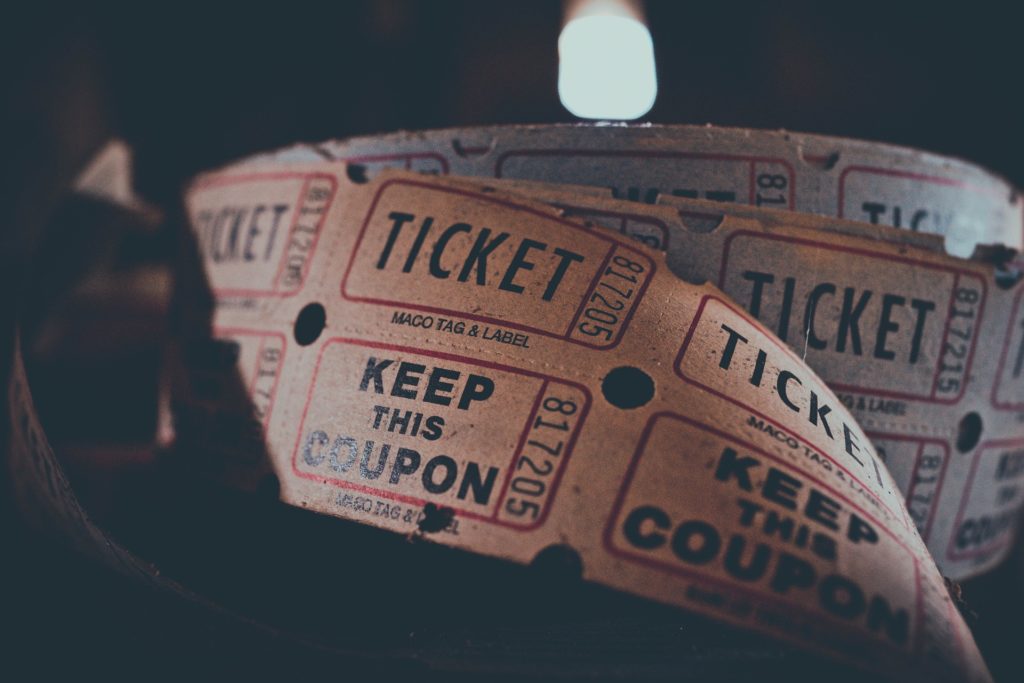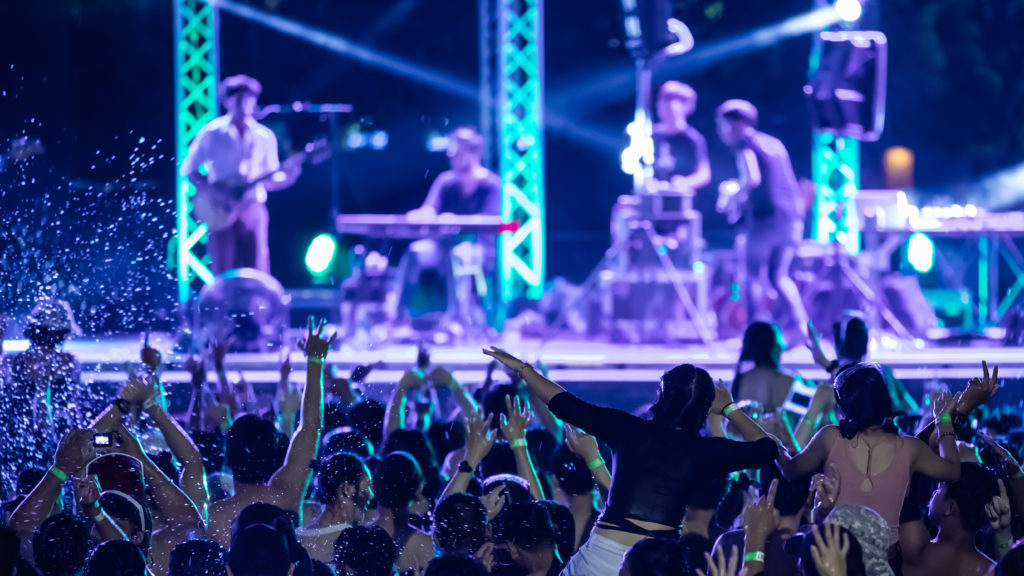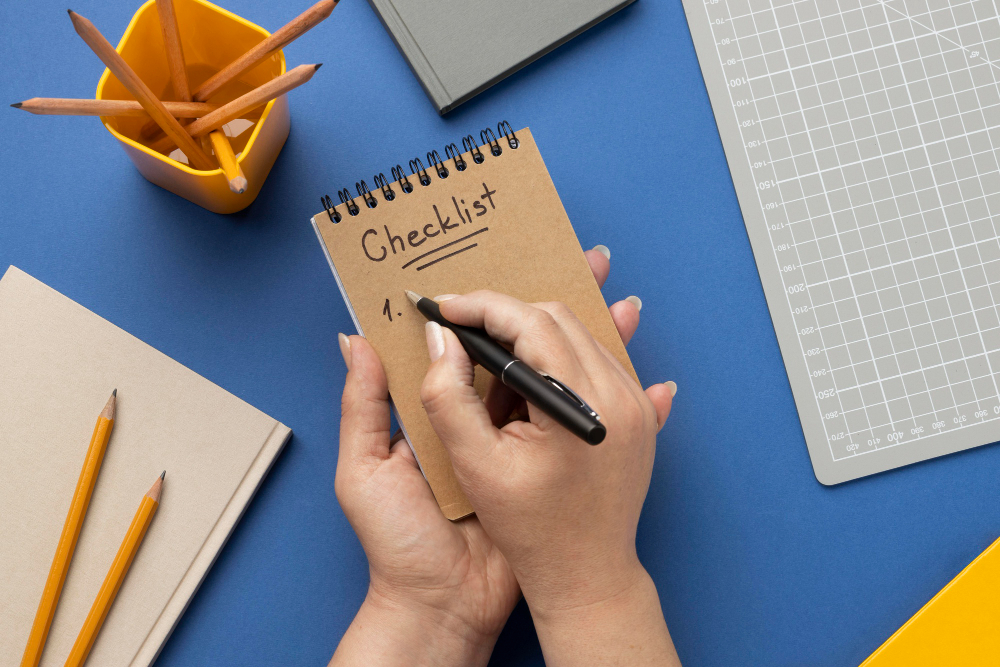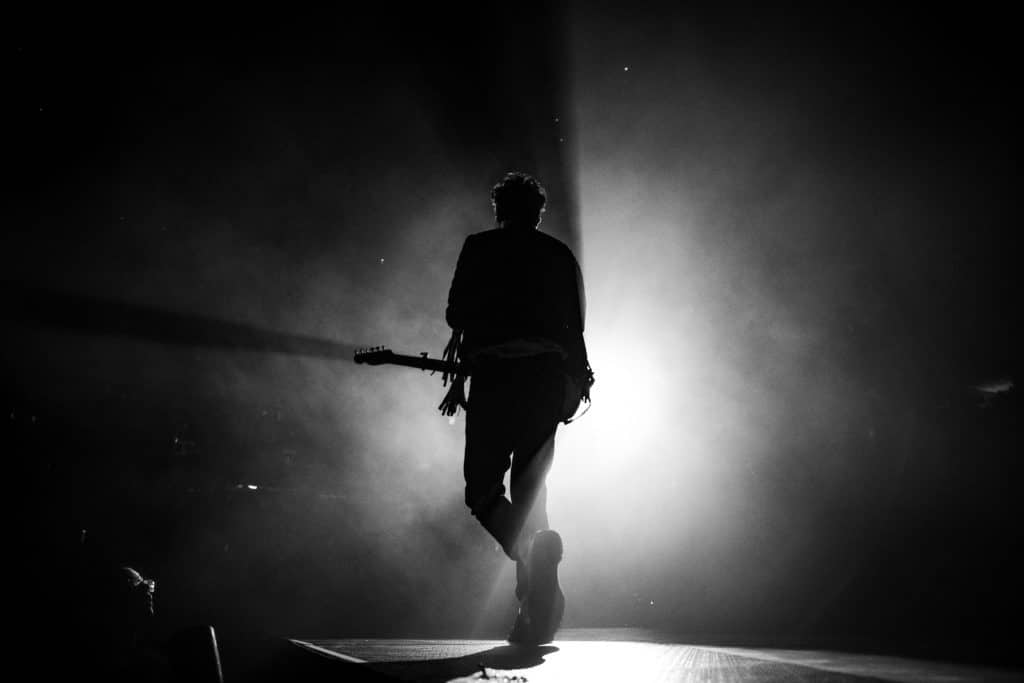
How to Determine What Ticket Prices Will Maximize Revenue
Figuring out concert ticket prices has always been one of the most difficult parts of the music business. Prices that are too high lead to low attendance, undercutting concessions and merch sales on top of lower ticket revenue. Overcompensate with prices that are too low and you still end up with lowered revenue—with the added bonus of encouraging scalpers.
Finding the sweet spot is critical for maximizing a show’s potential and avoiding disappointing revenue dips. While it used to be more guesswork than anything, today’s music promoters and venue managers have a wealth of new management tools to settle on the right price.
Learning to use real-time data to understand the audience gives music pros a customized window into the ticketing process. Although many still squeak by with Excel spreadsheets and old-school systems, these outdated methods are a path to spending more time while getting worse results.
7 steps to maximizing ticket price revenue
So, what are the ingredients that will help you reach the highest ROI for an event? The reality is that the formula is different every time—often leading to headaches as promoters sift through the variables. One way to get started is by visualizing your fixed and variable costs to come up with a viable starting point. By ensuring you have accurate fixed costs and strong projections for the variables, you’ll be on your way to figuring out the right ticket prices.
Step one: Identify all potential costs and find the breakeven point
Ah, budgeting. The thing that got everyone into the music business in the first place. OK, so maybe budgeting is the least sexy part of live music, but getting good at anticipating costs and creating accurate budgets will set you up for long-term success.
First, it’s helpful to see if there are any set-in-stone costs that you can put directly into the budget. Often, a venue will charge a flat fee that will end up being a substantial part of your budget. Artists might also charge a fixed rate, but it’s more likely their rate will be at least partially tied to ticket sales. Once you’ve come up with any fixed costs, it’s time to start making projections for the rest of your costs.
Marketing
A strong marketing campaign is the glue that brings a concert event together. Unfortunately, spending the right amount can also be tricky. Savvy promoters are flexible enough to use whatever method is best to reach the target audience. That will likely include digital outreach, but it might also include traditional options like flyers at local businesses.
There is no magic number for how much to spend, but keeping marketing costs below 20% of expected sales revenue is a good start. Aiming for 10% or less will give you a little wiggle room, although each concert will be different.
Artist costs
The percentage an artist will get from the show is usually the easy part. Now you have to calculate the nitty gritty costs such as:
- Crew members
- Transportation (gas, shuttle services)
- Hotel/lodging
- Any personal needs
The goal is to find realistic figures to plug into your budget and expect a small margin of error. While you don’t need to spend an enormous amount of time trying to determine an exact number, a reliable figure here will be very helpful for your budgeting process.
Other miscellaneous costs
If the venue isn’t handling all the personnel, you’ll need to anticipate sufficient expenses to have an appropriate event-day staff. This includes everything from basic audio and lighting techs to valet attendants and extra security guards.
Related: Secrets to an Effective Concert Planning Process
Other potential costs may arise due to weather. If it’s an outdoor show, or if outdoor space is needed for a ticketing queue, you might need to set up temporary shelters to keep fans dry or out of the sun. For winter events in colder climates, a last-second snowstorm can lead to hiring a snow removal company to ensure entrances and exits are good to go.
Instead of coming up with a single cost for miscellaneous items, it’s best to use a range that can be narrowed as you get closer to the event. If you build in some cash for snow removal, and a snowstorm doesn’t materialize, you can breathe easier knowing you’ll likely come in at the low end of the range. Putting all the costs together should give you a usable breakeven point that will help you select ticket prices.
Step two: Assess the capacity and project ticket sales
We all want to pack the house and have a sold-out show. But when it comes to determining what ticket price would maximize revenue, be realistic about how many tickets you can sell. Is selling out a 1,000-seat venue realistic for the specific artist and time of year? Or is 750 a more reasonable goal?
Once you have a general sense of how many tickets you’re likely to sell, divide the breakeven point by the total number of expected ticket sales. If you used projection ranges in your cost analysis, make sure you’re using the high end of the range to give you a worst-case scenario break-even estimate. This will give you the minimum ticket price that will put you into the green based purely on ticket sales.
Many promoters will also want to make some projections based on merchandise sales and other revenue sources (like bar/concessions revenues). Merch profits have become a huge part of concert revenues, which might allow promoters to set lower ticket prices. It’s helpful to assume merchandise sales will come in on the low end of the range to avoid an overabundance of optimism.
Step three: Look for shows with similar appeal
Now that you have your minimum ticket price, you can begin to scale up to determine the maximum price level. A simple way to do this is by looking at sales for shows with similar scope and appeal. You can look at your own past shows or events the venue has already held. It also helps to look at the artist’s past shows, particularly if they’ve already performed at the venue.
To create the most accurate projections, you can look at other artists who have similar reach—ideally from the same genre. Recent show prices from other bands can give you an excellent snapshot of the current market. And if you can find bands with overlapping audiences who performed at the same venue, you’ll have an excellent built-in template to work from.
Step four: Use data tracking to help price your events
A promoter’s best source of information for the next event is the data from the last one. At the end of a show, enhanced data tracking can give promoters an ideal look into the purchasing habits of the audience. They can see when ticket sales picked up or slowed down and which sales and marketing tactics were effective. This provides considerable insight and gives you an excellent reference point for the next event.
But real-time data can also help promoters in the lead-up to the show. If you haven’t sold enough tickets to hit your breakeven point, you can see the trend developing and make an adjustment. Dropping prices or using a special promotion might allow you to reach your goals despite a slow start to sales—or surpass them.
Step five: Consider competitor events in your projection
If you’re doing a small-town America tour with no other concert events in a 50-mile radius, figuring out ticket prices should be simple. But most promoters have local competitors who are dealing with the same exact dilemmas. This is a situation where a little competition is a great thing. Promoters can look at recent events hosted by their counterparts as a way to compare and contrast their own figures.
Promoters also need to look beyond music to better understand potential demand in the area. Imagine trying to put on an event in Indianapolis on the same day there’s a Colts game at Lucas Oil Stadium and a Pink concert at Gainbridge Fieldhouse. In fact, putting on a show anytime that week might be a challenge, given the number of locals purchasing tickets for one of those two events.
It’s also a good idea to look for any local festivals and annual events that are major draws in the area. You might still have successful ticket sales, but you have to consider the possibility that demand will be suppressed.
Related: 9 Tips to Make Your Live Music Venue More Successful
But competitor events can also offer an entry for digital marketing. Live sporting events and major concerts congregate ticket buyers into the same digital spaces before and after the event. If your event has some audience overlap, marketing efforts on the correlating social media channels can have an outsized impact.
Step six: Identify strategies that will increase ticket sales
You have your breakeven point and some reasonable expectations for ticket sales. You know the ticket prices that will get you to your minimum revenue level. But you’re not happy with hitting the low end of the range. You want to hit the high end of your projections and make the show more than just a modest success. Some strategies to consider include:
- Early-bird pricing: Offer a sale on tickets when you first release them to the general public. You can create a buzz by knocking off a percentage of the ticket price and giving early sales a boost.
- Timed-batch pricing: Timed-batch pricing works by releasing a set of tickets in smaller batches early on. With each batch released, you increase the ticket price a bit more to ignite a sense of urgency to buy tickets ASAP.
- Odd/even pricing: Odd-even pricing doesn’t have to make sense to work! For whatever reason, we tend to buy more when prices end in a nine or a five, a trend that can work for concert tickets, too.
- Bundled pricing: Bundling tickets with add-ons can be a great option for both fans and promoters. Including parking passes, backstage experiences, and/or merchandise in a bundle can increase overall revenue and create value for ticket buyers.
- Partitioned pricing: You’ll want to decide whether to include the fees in your online ticket price. While some promoters favor a total cost, others favor separating fees to show the lower price of the actual ticket. Though fans understand the need for service fees, make sure everything is transparent.
- Tiered pricing: Offering different ticket prices for different seats can be highly effective. But don’t overdo it either. It helps to keep it simple (like three tiers), but a lot will depend on the venue.
Step 7: Keep everything organized and accurate
When it comes to calculating breakeven points and ticket prices, a miscalculation can have dire consequences. Promoters need superior organization to sidestep mistakes and avoid spending too much time on the budgeting process. Today’s best music management platforms can step in to assist with all the budgetary calculations promoters need to perform.
With Prism’s music industry-specific software, promoters can quickly move through the phases of ticket sales and budgeting with confidence. Cloud-based tools make it easy to access all the critical information—wherever the job takes you. Reach out to Prism’s team of music professionals to see how an all-in-one platform can upgrade your ticketing process.

Matt Ford is the founder and CEO of Prism.fm, an Austin-based software company revolutionizing live music event management. With a background in entrepreneurship and a degree from the University of Wisconsin-Madison School of Business, Ford combined his self-taught coding skills with firsthand experience as a concert promoter to address the inefficiencies he observed in the industry. In 2018, he launched Prism.fm, an all-in-one platform designed to streamline operations for venues, promoters, and agencies by replacing cumbersome spreadsheets with integrated tools for booking, financial tracking, and contract management. Under his leadership, Prism.fm has grown significantly, achieving $3 million in annual recurring revenue post-COVID and securing over $15 million in funding . Ford’s commitment to building user-centric solutions has positioned Prism.fm as a trusted partner for over 1,500 venues and promoters worldwide.



